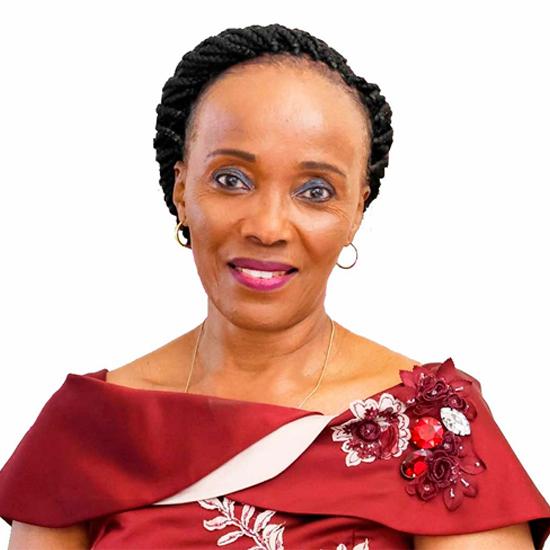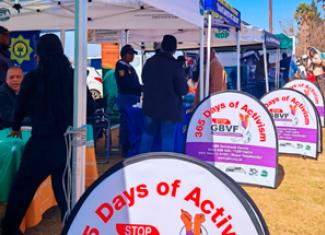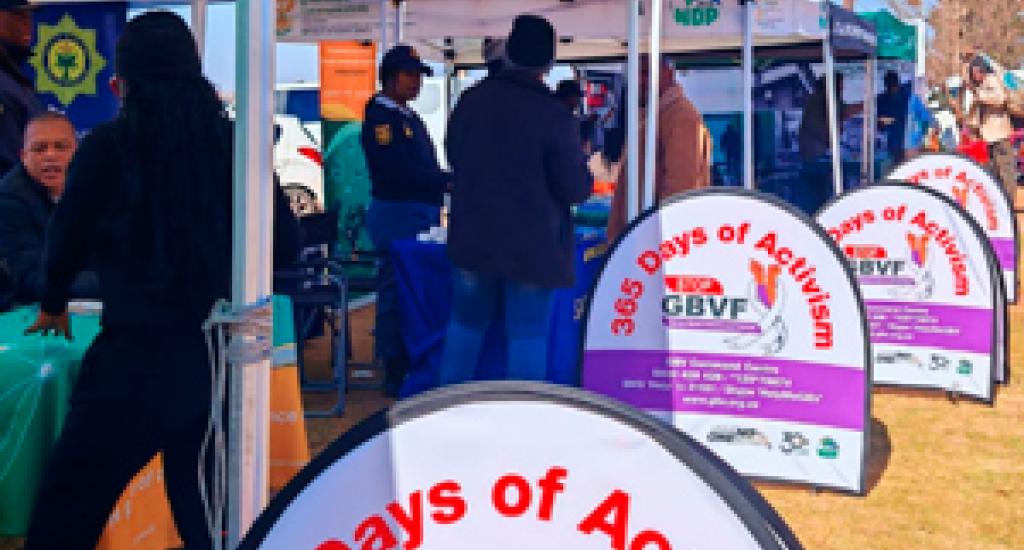From 16 Days
of activism to 365 Days of Safety

Each year, from 25 November to 10 December, South Africa joins the world in marking the 16 Days of Activism for No Violence Against Women and Children. For our nation, this is not just a date on a calendar; it is a call to conscience.
Three decades into democracy, the promise of safety and dignity remains unfulfilled for too many women and children. We see it in the numbers, but we feel it most in the stories of families torn apart; of girls whose futures are stolen; of women who face danger in the very places meant to shelter them. For them, this campaign is not symbolic, it is personal.
Launched globally in 1991, and adopted in South Africa in 1998, the 16 Days movement links 25 November, the International Day for the Elimination of Violence against Women to 10 December, which is International Human Rights Day. Its message remains enduring and simple: violence against women is a violation of human rights. My task, as Minister in The Presidency for Women, Youth and Persons with Disabilities, together with the whole-of-government and society, is to ensure that this message becomes a lived reality.
The question the public rightly asks is: What has 16 Days achieved? The answer is that the campaign has evolved from awareness to accountability, driving reforms that are beginning to bear fruit.
Through the National Strategic Plan on Gender-Based Violence and Femicide (NSP-GBVF), adopted in 2020, government, civil society, business and communities now work from one coordinated plan. It has strengthened prevention programmes, improved the justice system, expanded survivor services and opened new avenues for women’s economic power so that safety and dignity are experienced, not promised.
Institutionally, progress is visible. The National Council on GBVF Act of 2024, has established a soon to be appointed permanent, multi-sectoral council to coordinate, monitor and hold the system to account. More than R1.6 billion has been mobilised to fund shelters, psychosocial support, policing capacity and community prevention efforts, while gender-responsive budgeting ensures that every commitment is matched by real resources.
Citizens are also proving that change is possible at local level. Through the End GBVF Collective’s 100-Day Challenge, police officers, prosecutors, social workers, health professionals and community activists have joined forces to tackle specific bottlenecks.
Districts that piloted the model report shorter case backlogs, quicker survivor referrals and renewed public trust. This is what it means to move from events to impact, from 16 Days of Activism to 365 days of activism, accountability and change.
Ultimately, the true measure of the campaign is not the number of marches or speeches, but the number of lives protected, the speed of response and the certainty that justice is served.
Under South Africa’s Chairship of the G20 Empowerment of Women Working Group, we placed three priorities at the heart of our Presidency: ending GBVF, advancing women’s financial inclusion, and investing in the care economy; because safety, income and care are inseparable.
Through this work, we have emphasised that stronger laws, fair access to finance and shared care responsibilities together form the foundation of a society free from violence. When women have assets and income, they have choices; when care work is recognised and supported, households are more stable; and when violence is prevented and punished, families and economies thrive.
To carry this vision beyond our Presidency, South Africa is driving three legacy projects that turn policy into daily practice. The Positive Masculinity Initiative, which intends on engaging men and boys in schools, workplaces, faith and cultural spaces to model respect, take responsibility and intervene early.
The National Care Economy Strategy to build a society that values care as social and economic infrastructure –creating jobs, reducing women’s vulnerability and lowering the stress that fuels violence in homes.
The Disability Inclusion Nerve Centre to ensure that women and girls with disabilities are fully visible and supported in justice systems and economic opportunities. Together, these legacy projects show that preventing violence is not only a moral imperative but a measure of inclusive development.
As Minister, I am clear about the task before us. Safety is systemic. We will end GBVF when we change how men behave, how money flows, how care is shared and how our institutions serve survivors – every single day.
I call on every sphere of government to budget with evidence, deliver with urgency and report with transparency. I call on business to invest in prevention and workplace safety; on faith and cultural leaders to champion positive masculinity; on educators and health workers to be the first line of protection; and on every South African to reject the silence that shelters abuse.
If we hold this line, with accountability, inclusion and care, we will make the promise of our Constitution real for every woman and every child. That is the legacy we owe this generation and the standard by which history will judge us.




